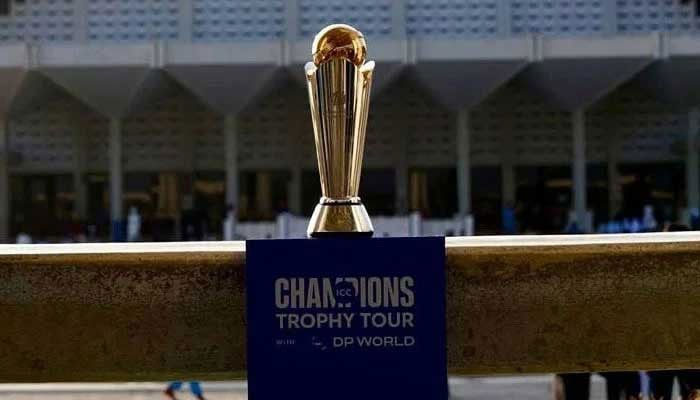Champions Trophy
Refusal to play in Pakistan deprived host nation of opportunity to stage tournament’s final
India made history in the ICC Champions Trophy 2025, marking their third title in the prestigious tournament. Their six-match unbeaten streak cemented their status as the world’s number-one ODI team. However, this victory has come after much controversy, particularly regarding India's refusal to travel to Pakistan and the broader implications of the Board of Control for Cricket in India’s (BCCI) increasing influence over the International Cricket Council (ICC). India’s decision to play all their matches in Dubai, rather than touring Pakistan, was officially justified on security grounds. Yet, few are fooled by this rationale. It was a political decision, dictated by the Modi government’s stance towards Pakistan, in keeping with the growing trend of India using its economic and political leverage to dictate the terms of international cricket. The refusal to play in Pakistan deprived the host nation of the opportunity to stage the tournament’s final, an outcome that was both unfortunate and unfair.
Criticism has been mounting over how the BCCI wields disproportionate influence over the ICC, often securing arrangements that favour India. In this case, India’s stay at a single venue in Dubai provided them with an unfair advantage over teams like Australia, New Zealand, Pakistan and South Africa, all of whom had to navigate the logistical challenges of travelling between Pakistan and the UAE. This isn’t an isolated instance; India has been accused of benefiting from pre-arranged scheduling during the T20 World Cup 2024 as well. Hardik Pandya, one of India’s star all-rounders, distanced himself from the decision, stating that it was beyond his control. This only reaffirms that it was the BCCI -- and by extension, the Modi government -- that orchestrated India’s avoidance of Pakistan. If the BCCI had its way, Pakistan wouldn’t have been allowed to host the Champions Trophy at all. The fact that the hybrid model was only agreed upon to accommodate India’s demands highlights the extent of the BCCI’s dominance in global cricket affairs. This was further exemplified when Pakistani officials were conspicuously absent from the Champions Trophy presentation ceremony, despite being the host nation.
Yet, while India’s off-field manoeuvres were successful, they were not entirely victorious in controlling the narrative. The international cricketing fraternity did take note of Pakistan’s seamless hosting of the tournament, with players and journalists from all participating nations praising the hospitality and enthusiasm of Pakistani crowds. For Pakistan, there were two disappointments: the early exit of the national team from the tournament and the fact that the final was not held on home soil. However, the successful execution of the event, despite India’s refusal to participate in Pakistan, has been a testament to the country’s ability to host top-tier international cricket. The Champions Trophy 2025 may have ended with India lifting the trophy, but the tournament also exposed the growing concerns over the BCCI’s unchecked power. Cricket should be about fair competition, not political manoeuvring. The ICC must reassess its priorities and ensure that the sport’s integrity is not compromised by the interests of one powerful board. Meanwhile, maybe the Pakistan cricket think tank needs to figure out how to get our team to actually win matches.
-
 Prince William, Kate Middleton Camp Reacts To Meghan's Friend Remarks On Harry 'secret Olive Branch'
Prince William, Kate Middleton Camp Reacts To Meghan's Friend Remarks On Harry 'secret Olive Branch' -
 Daniel Radcliffe Opens Up About 'The Wizard Of Oz' Offer
Daniel Radcliffe Opens Up About 'The Wizard Of Oz' Offer -
 Channing Tatum Reacts To UK's Action Against Andrew Mountbatten-Windsor
Channing Tatum Reacts To UK's Action Against Andrew Mountbatten-Windsor -
 Brooke Candy Announces Divorce From Kyle England After Seven Years Of Marriage
Brooke Candy Announces Divorce From Kyle England After Seven Years Of Marriage -
 Piers Morgan Makes Meaningful Plea To King Charles After Andrew Arrest
Piers Morgan Makes Meaningful Plea To King Charles After Andrew Arrest -
 Sir Elton John Details Struggle With Loss Of Vision: 'I Can't See'
Sir Elton John Details Struggle With Loss Of Vision: 'I Can't See' -
 Epstein Estate To Pay $35M To Victims In Major Class Action Settlement
Epstein Estate To Pay $35M To Victims In Major Class Action Settlement -
 Virginia Giuffre’s Brother Speaks Directly To King Charles In An Emotional Message About Andrew
Virginia Giuffre’s Brother Speaks Directly To King Charles In An Emotional Message About Andrew -
 Reddit Tests AI-powered Shopping Results In Search
Reddit Tests AI-powered Shopping Results In Search -
 Winter Olympics 2026: Everything To Know About The USA Vs Slovakia Men’s Hockey Game Today
Winter Olympics 2026: Everything To Know About The USA Vs Slovakia Men’s Hockey Game Today -
 'Euphoria' Star Eric Made Deliberate Decision To Go Public With His ALS Diagnosis: 'Life Isn't About Me Anymore'
'Euphoria' Star Eric Made Deliberate Decision To Go Public With His ALS Diagnosis: 'Life Isn't About Me Anymore' -
 Toy Story 5 Trailer Out: Woody And Buzz Faces Digital Age
Toy Story 5 Trailer Out: Woody And Buzz Faces Digital Age -
 Andrew’s Predicament Grows As Royal Lodge Lands In The Middle Of The Epstein Investigation
Andrew’s Predicament Grows As Royal Lodge Lands In The Middle Of The Epstein Investigation -
 Rebecca Gayheart Unveils What Actually Happened When Ex-husband Eric Dane Called Her To Reveal His ALS Diagnosis
Rebecca Gayheart Unveils What Actually Happened When Ex-husband Eric Dane Called Her To Reveal His ALS Diagnosis -
 What We Know About Chris Cornell's Final Hours
What We Know About Chris Cornell's Final Hours -
 Scientists Uncover Surprising Link Between 2.7 Million-year-old Climate Tipping Point & Human Evolution
Scientists Uncover Surprising Link Between 2.7 Million-year-old Climate Tipping Point & Human Evolution




